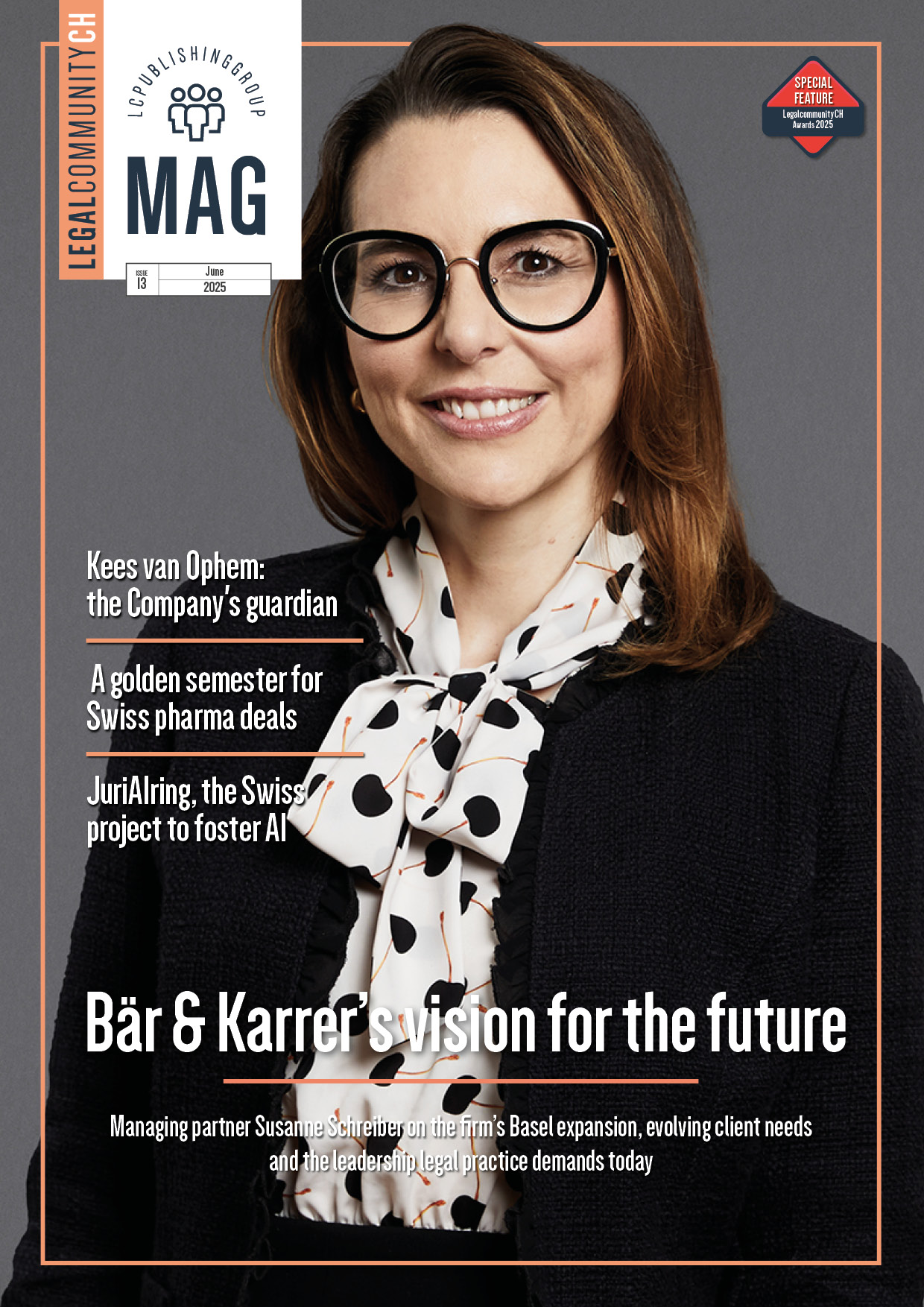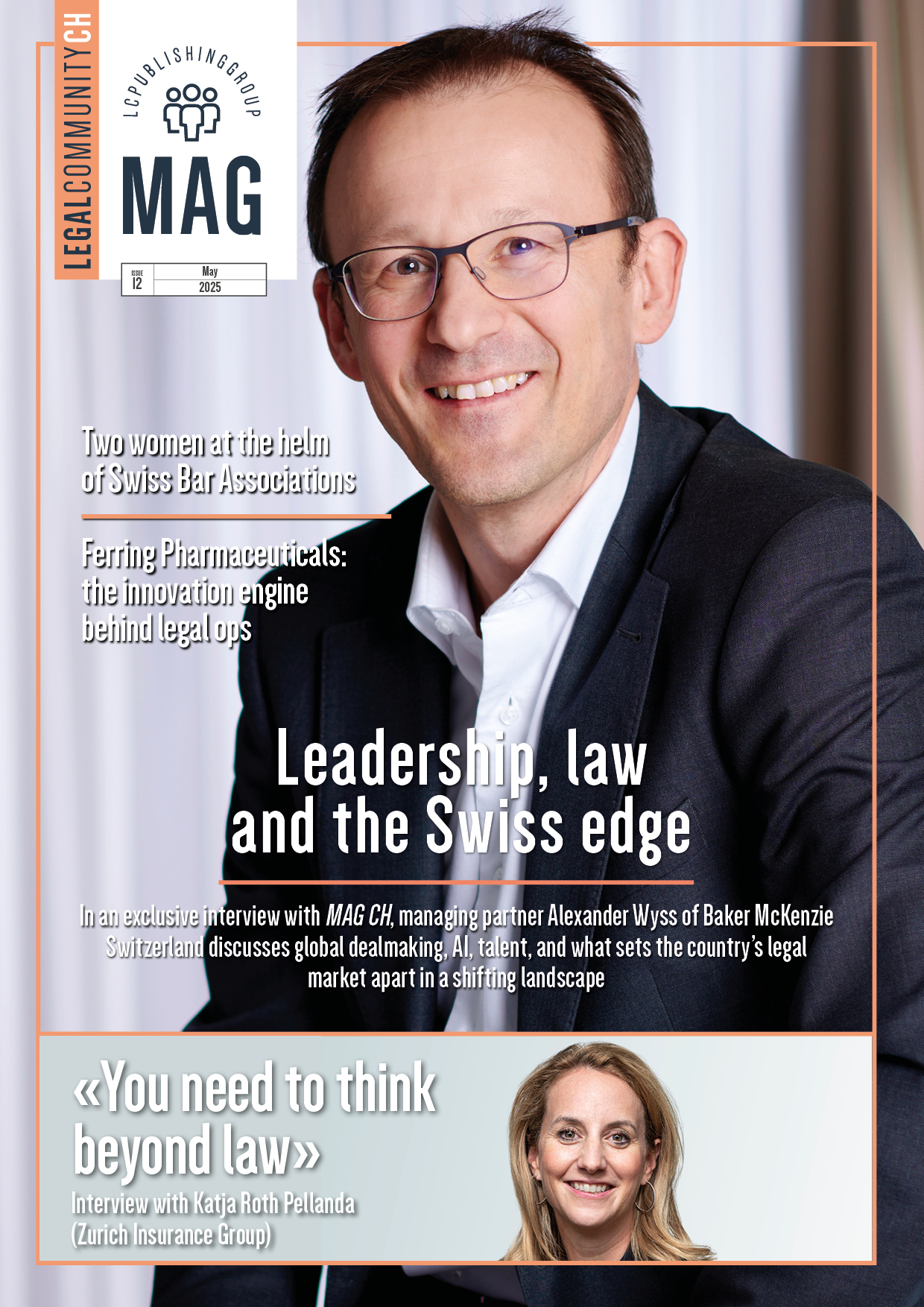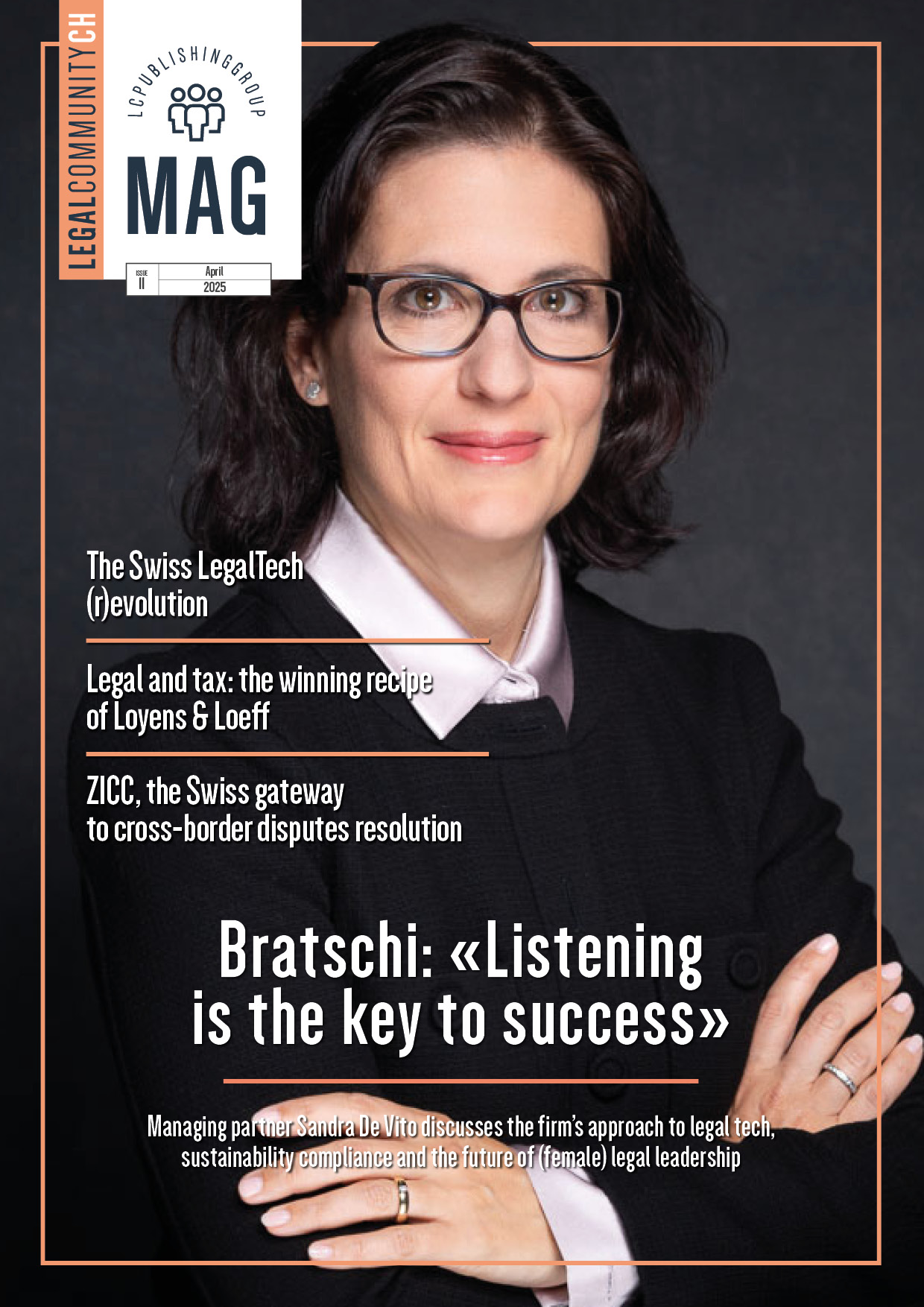Swiss Trusts: Coming soon?
by Mercedes Galán
Switzerland launched a consultation earlier this year to introduce legislation on trusts. Establishing a trust under Swiss law has not been possible before despite several attempts to introduce a Swiss fiduciary legislation. However, foreign trusts have been recognised in Switzerland under the Hague Trust Convention since 2007. The proposed provisions on the draft bill will enable trusts to be used both to
structure private assets and for commercial transactions.
Legalcommunity.ch has discussed the issue with Altenburger’s partner Sebastiano Garufi Giuliani to highlight the most significant aspects of the trusts legislation.
The draft bill published on 12 January 2022 by the Swiss Federal Council intends to introduce trusts into Swiss law. Do you think it will be soon a reality?
As you mentioned, the Swiss Federal Council proposed the introduction of the new legal institution of the trust in the Swiss Obligations Code. The Swiss trust should have the essential characteristics of such a legal institute under Anglo-Saxon law and should correspond to the definition contained in the Hague Convention. The new legislation is aimed at enhancing the certainty of Swiss law and transparency. Natural and legal persons would in fact have a concrete alternative to foreign legislation in their private or commercial contexts, for real estate planning, for succession purposes, to hold assets and so on.
So how does it works now in Switzerland?
Currently, in Switzerland trusts are settled under the legislations of other countries, which are not always comprehensible or understood. Some other civil law countries have already amended their domestic legislation once they have ratified the Hague Convention on Trust.
This is, for example, the case of the Netherlands, which introduced the Dutch Conflict Rules on Trust, which allows to settle domestic trusts, or that of Luxembourg which amended the domestic fiduciary contract, which has the main characteristics of a trust.
What do you consider should be the main features of the Swiss trust?
The draft bill should introduce the trust as a new legal institution into Swiss law, without transposing a foreign institute into the existing legal framework. The trust must be regarded as a sui generis legal institution, consisting of a lasting obligatory relationship binding the trustee to the beneficiaries and having per object special assets, which are exclusively intended for the interests of the beneficiaries. In some cases, the settlor can keep certain powers and/or appoint a guardian, who supervises the activity of the trustee. In this sense, the Swiss trust will keep the typical legal features of any trust settled under common law.
According to the Federal Council, the trust will not compete with the foundation. Do you think this is due to the high reputation this legal form enjoys in Switzerland?
The draft bill explicitly excludes the creation of charitable trusts and other purpose trusts only, in order not to compete with the foundations, which is a legal form that enjoys a very good reputation and seems to meet the needs of the various actors in this sector. Amendments to the foundation law, and in particular to the law on family foundations, may be considered at a later stage.
What would be the main differences between the two figures?
Most foundations in fact pursue a public benefit purpose like charitable trusts under AngloSaxon law. The foundation is also the legal form used in Switzerland by employee benefit institutions, and thus fulfils similar functions to Anglo-Saxon trusts. Although foundations can also be used for private interests or to pursue an economic purpose (holding foundation, company foundation), the rigidity of certain rules of this instrument limits its use as a private trust, and practically excludes its use in the commercial field (such as a commercial trust).
By contrast, there are fundamental differences between foundations and trusts. One of them consists in the fact that the foundation acquires legal personality with its registration in the Commercial Register. Another difference is that foundations are governed by strict rules that make them a far less flexible instrument than trusts. Their formation and modification, for instance, require a public deed and they must be entered in the Commercial Register. Moreover, foundations are usually subject to state supervision. No such publicity exists for trusts, although some legal systems do provide for a register of trusts, in particular to fight against money laundering and tax evasion. Furthermore, foundation law does not grant any special protection to the beneficiaries, they are generally less protected than those of a trust.
Swiss trusts will have to comply with international reporting requirements with trustees having to identify beneficiaries to avoid money laundering and fiscal transparency. How is it envisaged to ensure the implementation of transparency rules?
Since the Swiss trust may also be used abroad, it is important that it be compatible with the transparency rules of international standards. The draft bill therefore considers Switzerland’s international commitments in combating money laundering and terrorist financing, and in tax transparency. It includes provisions to ensure full compliance with the requirements of the FATF, the Financial Action Task Force, and the Global Forum on Transparency and Exchange of Information in Tax Matters mainly concerning the trustee’s obligations to identify and verify the beneficial owners. Insofar as the anti-money laundering legislation in force in Switzerland adequately limits the risk of misuse of a trust, this risk will not be increased by the possibility of setting up a trust under Swiss domestic law.
There are no Swiss tax provisions on the taxation of foreign trusts. The principles governing it were laid down in a non-binding circular letter of the Swiss Tax Conference. How do you expect the new legal framework will affect this?
The draft bill intends to keep the current tax practice of trust, i.e. by allocating income and wealth to the settlor in the case of a revocable trust, and to the beneficiaries in the case of irrevocable fixed interest trusts. In the case of irrevocable discretionary trust, it is proposed to allocate income and assets to the trust itself, which should be considered as an independent tax entity, provided that at least one of the beneficiaries resides in Switzerland.
If the trust is based abroad, can Switzerland tax it?
The tax liability does not extend to the shares of assets of the beneficiaries resident abroad. If according to the applicable double tax treaty the trust is based abroad, Switzerland cannot tax it. In such cases, the income and the assets of the trust are to be attributed to the settlor (subsidiary rule).
And in the case of trusts administered abroad and whose beneficiaries are in Switzerland?
Regarding the taxation in Switzerland of trusts administered abroad and whose beneficiaries are also in Switzerland, the draft bill provides for joint liability of the settlor and the beneficiaries in Switzerland for the taxation of the trust.
If the attempt is unsuccessful this time, what will be the future situation? Do you believe that the creation of a Swiss trust will lead to new business opportunities?
I am quite optimistic, actually. I think that this legislation will improve the attractiveness of the Swiss financial markets and give new business opportunities.
Taking into account the uncertainty in the interpretation of the Swiss trust law, what advice would you give to wealth owners?
I am convinced that the Swiss trust law will be easy to understand and to interpret, especially considering the legal experience of neighbouring countries. Of course, it will be also necessary to wait for the formation of a consolidated jurisprudence on some specific points, which will arise in the practice, but Switzerland has so far always given a good example of certainty of law, clarity, and stability of the legislation.
About Sebastiano Garufi Giuliani
Sebastiano Garufi Giuliani specializes in the area of Swiss, Italian and international tax law. He advises individuals and companies in their cross-border legal and tax issues between Italy and Switzerland.
















